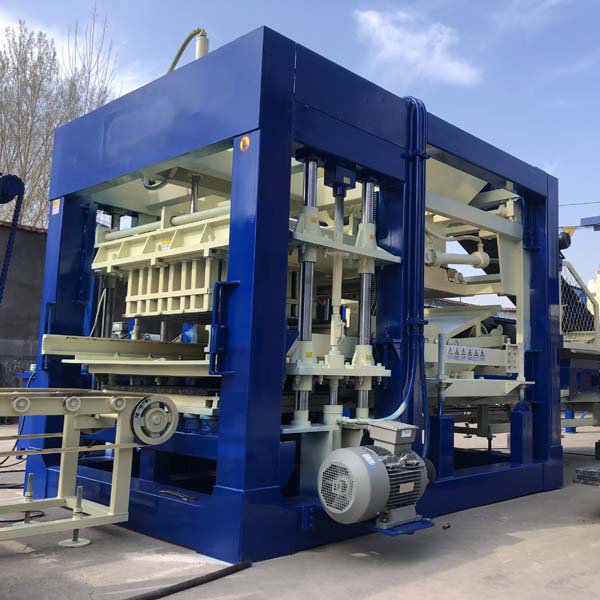
Factory automation has long been a cornerstone of modern industrial practices, but recent advancements in technology have propelled automation to new heights.
One such groundbreaking innovation is BlockMachine, a revolutionary system that redefines factory automation.
In this essay, we will explore the concept and principles of BlockMachine, its role in maximizing efficiency and precision in manufacturing, its impact on the workforce, and the potential challenges and benefits it presents to the industry.
Understanding BlockMachine and its Principles
BlockMachine represents a paradigm shift in factory automation, driven by its underlying principles of modularity, adaptability, and intelligent coordination.
At its core, BlockMachine is an assembly of interconnected robotic modules, each designed to perform specific tasks autonomously.
These modules can be reconfigured and combined in various ways, allowing for unparalleled flexibility in adapting to different production requirements.
The modularity of BlockMachine enables manufacturers to create custom production lines tailored to specific products or processes.
The ability to mix and match modules offers a cost-effective solution, as manufacturers can invest in only the necessary components without having to purchase an entirely new automated system.
Intelligent coordination is the backbone of BlockMachine’s seamless operation.
The robotic modules communicate with each other through advanced artificial intelligence controllers, optimizing their movements and actions in real-time.
This coordination ensures smooth workflows, minimal downtime, and synchronized production cycles.
Enhancing Efficiency in Manufacturing
BlockMachine’s presence on the factory floor has significant implications for production efficiency:
Continuous Operation: Unlike human workers, BlockMachine does not require rest breaks, leading to uninterrupted production cycles.
This continuous operation translates into higher productivity and reduced idle time, ultimately shortening the time it takes to complete manufacturing tasks.
Rapid Reconfiguration: The modularity of BlockMachine allows for quick reconfiguration to adapt to changing production demands or new product designs.
Manufacturers can swiftly reprogram the modules or add/remove components as needed, minimizing downtime associated with traditional retooling processes.
The intelligent coordination of BlockMachine ensures that each module performs its task precisely and efficiently.
This streamlining of the workflow reduces inefficiencies and bottlenecks, resulting in a smoother production process overall.
BlockMachine’s AI-driven controllers continuously collect and analyze production data.
This data-driven approach enables manufacturers to identify areas for improvement, optimize resource allocation, and make informed decisions to enhance overall efficiency.
Precision Manufacturing with BlockMachine
Precision is a critical factor in manufacturing, especially in industries such as aerospace, electronics, and medical devices.
BlockMachine excels in delivering precision manufacturing through:
BlockMachine’s robotic modules perform quality control checks with remarkable accuracy and consistency.
They can detect even minor defects, ensuring that products meet stringent quality standards throughout the production process.
The precise movements of the robotic arms in BlockMachine allow for the production of products with tight tolerances.
This level of precision is often challenging to achieve with manual labor or traditional automation methods.
Human workers’ performance can be influenced by various factors, leading to some degree of variability in the output.
BlockMachine, on the other hand, delivers consistent results, minimizing the variation in product quality.
With its intelligent coordination and real-time feedback, BlockMachine can identify and rectify potential defects early in the production process.
This proactive approach reduces the likelihood of defects in the final products, which is crucial for industries with strict safety and quality requirements.
Impact on the Workforce and Future Challenges
While BlockMachine offers numerous benefits, its implementation also raises questions about its impact on the workforce and potential challenges:
As BlockMachine takes over repetitive and labor-intensive tasks, there may be concerns about job displacement.
Manufacturers must carefully manage workforce transition by upskilling employees to take on more strategic roles in overseeing and optimizing automated processes.
Achieving seamless collaboration between humans and BlockMachine is crucial.
Designing interfaces that allow human operators to interact with the system intuitively will be a key challenge in ensuring a harmonious relationship between workers and automated technologies.
The adoption of BlockMachine requires a significant initial investment.
While the long-term benefits in terms of increased productivity and efficiency can justify the costs, smaller manufacturers may face financial constraints in implementing this advanced automation system.
The integration of AI and IoT components in BlockMachine creates potential cybersecurity vulnerabilities.
Manufacturers must prioritize data security and privacy to protect sensitive production data from potential breaches.
BlockMachine represents a transformative force in factory automation, maximizing efficiency and precision in manufacturing operations.
Its modularity, adaptability, and intelligent coordination enable seamless workflows, reduced downtime, and increased productivity.
BlockMachine’s precision manufacturing capabilities elevate product quality, bringing numerous advantages to industries that demand tight tolerances and stringent quality control.
However, the adoption of BlockMachine also presents challenges, such as workforce transitions and cybersecurity concerns.
As manufacturers continue to explore the potential of this innovative technology, addressing these challenges will be crucial in harnessing the full potential of BlockMachine to redefine factory automation for the better.
